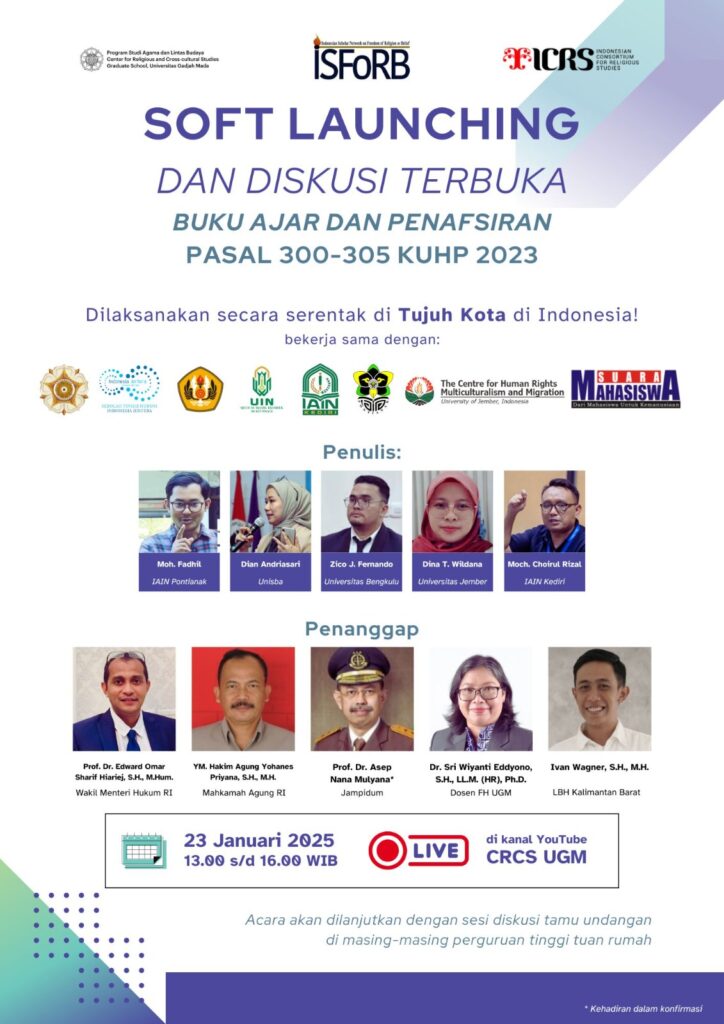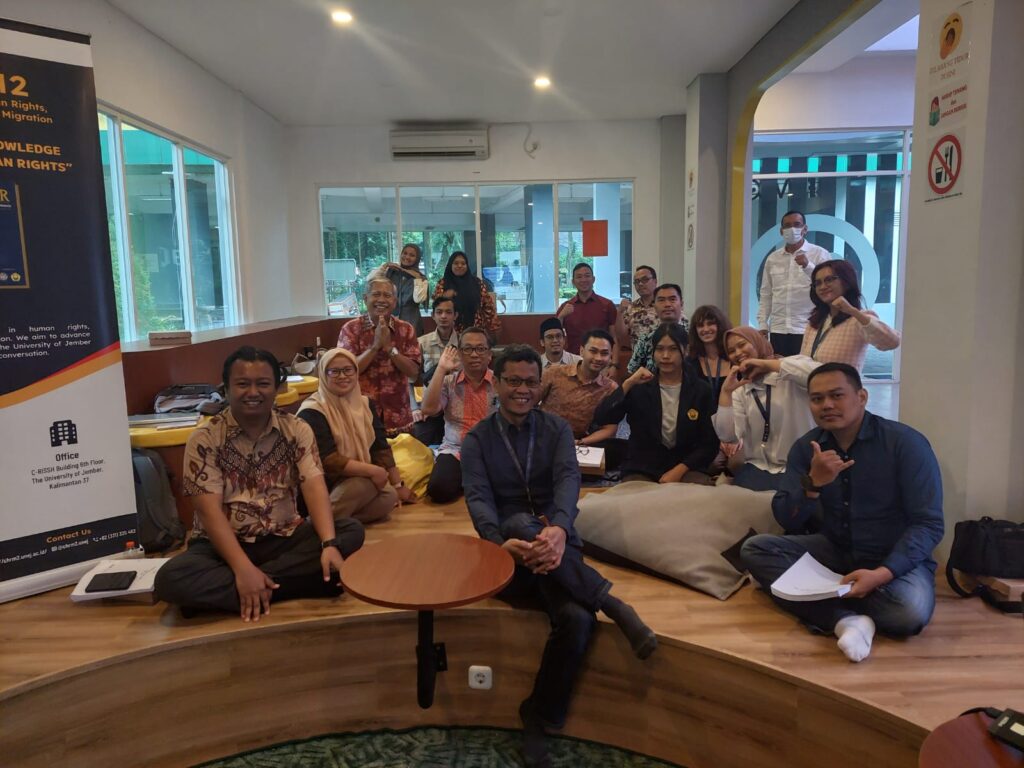
On January 23, 2025, the Centre for Human Rights, Multiculturalism, and Migration at the University of Jember joined seven other universities in hosting a joint soft launch for a new textbook on the interpretation of Articles 300-305 of Indonesia’s 2023 Criminal Code. The articles covered by the interpretation expand the 1965 blasphemy law, with one crucial change being the replacement of language specifying “religious” blasphemy with language criminalizing interference with belief, thus incorporating indigenous faith into legal protection by the code. The event included presentations by the five authors of the interpretation as well as the reviewers, one of whom is the Deputy Minister of Law, and ended with an open discussion incorporating academics, jurists, and civil society representatives. The mixed format allowed for a wide-ranging conversation both within and between the eight universities on the implications, enforcement, and dissemination of the new regulations, with each participant receiving an advance copy of the textbook.
As part of this nationwide event, the University of Jember’s session took place at the BRI Coworking Space, from 1:00 PM to 4:00 PM, accommodating both online and offline participants. Twenty invited guests, comprising practitioners and academics, attended the discussion.
The panel of discussants included:
- Prof. Dr. Edward Omar Sharif Hiariej, S.H., M.Hum. (Deputy Minister of Law and Human Rights of Indonesia)
- Hon. Justice Yohanes Priyana, S.H., M.H. (Supreme Court of Indonesia)
- Dr. Dessy Anggraeni, S.H., M.H. (Deputy Attorney General for General Crimes, Attorney General’s Office of Indonesia)
- Dr. Sri Wiyanti Eddyono, S.H., L.L.M. (HR), Ph.D. (Lecturer at the Faculty of Law, Gadjah Mada University)
- Ivan Wagner, S.H., M.H. (West Kalimantan Legal Aid Institute)
Prof. Edward Omar Sharif Hiariej expressed gratitude to the authors for providing guidance to the public on implementing these articles. However, he noted concerns that while the book aims to protect minorities, these provisions could be misused to criminalize minority groups under the guise of maintaining religious harmony.

Dr. Dessy Anggraeni highlighted that certain aspects of these articles warrant further review before the Criminal Code comes into effect next year. She emphasized the importance of evidence in criminal proceedings and noted that the application of Articles 300-305 heavily relies on expert testimony, such as from linguists or religious scholars, to determine instances of incitement or hate speech. She also mentioned that events like this are beneficial for investigators and prosecutors by providing valuable insights.
Justice Yohanes Priyana discussed the challenges judges face in interpreting these provisions. He emphasized that criminal law should not be open to interpretation and that the new Criminal Code requires judges to adopt a restorative approach, aiming to rehabilitate offenders, society, and victims. He pointed out that the sanctions outlined are open to multiple interpretations, potentially leading to social unrest if not applied judiciously.
Dr. Sri Wiyanti Eddyono stressed that issues of religious freedom cannot be adequately addressed without incorporating relevant curricula in law faculties. She advocated for human rights perspectives to be integral in the training of law enforcement officers, ensuring that human rights considerations are foundational during investigations and arrests. She also suggested that the book could be more effective if accompanied by appropriate educational programs.
The event concluded with a consensus on the need for continuous dialogue and education to ensure that the implementation of Articles 300-305 aligns with the principles of justice and human rights, preventing potential misuse against minority groups.
